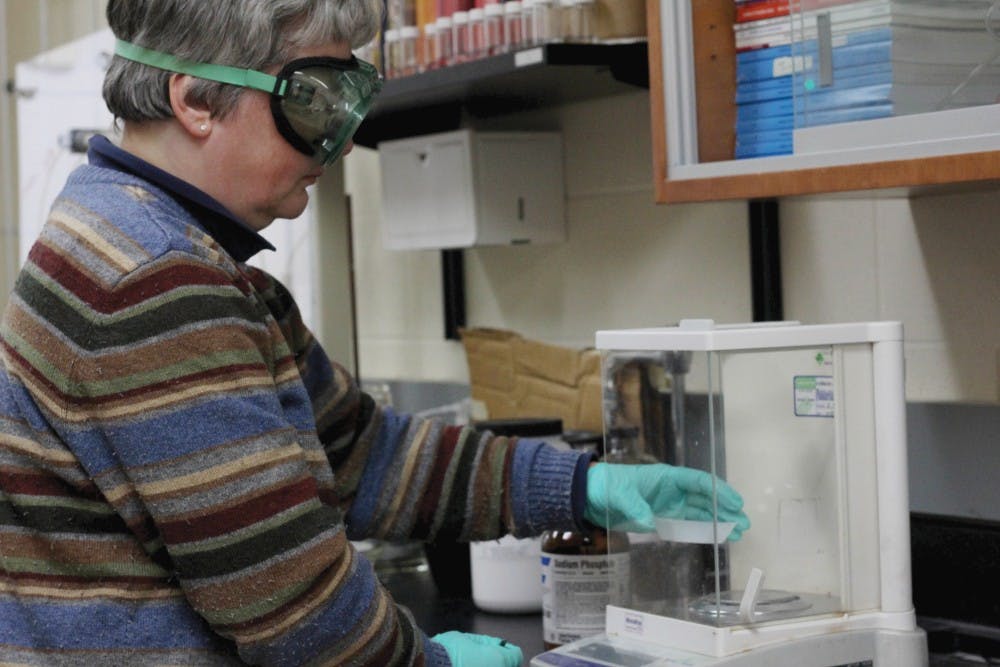A woman in science
As one of seven women faculty in the chemistry department, Anja Mueller is a minority at the university and in the world of science.
There are few women in science, technology, engineering and mathematics professions, also known as STEM fields. According to a report released in 2011 by the U.S. Department of Commerce, women hold about 25 percent of STEM jobs compared to the 75 percent occupied by men.
Mueller has experienced inequality first hand in Germany. She was born in Bremen, Germany, grew up in Munich, and arrived at CMU in 2005.
Of the four research projects Mueller is conducting, with the help of students and other faculty, has already succeeded in building a strong skin scaffolding, which rebuilds skin for burn victims. Now she is devising a water-based, biodegradable layer to go underneath the scaffolding.
She is also working to clean toxins out of water, build a fuel cell membrane and teach students to work with people of other disciplines.
Central Michigan Life sat down with Mueller to talk about her research, experience as a woman in STEM, and the importance for women to get involved in science.
CML: Are there differences in treatment for men and women in the science fields?
MUELLER: "There (have been) instances where people actually told us, 'women get 70 percent of the money men might get for the same job.' So I have seen a bit of that. (But) it's not always as obvious. Sometimes it's just different expectations."
CML: What sort of different expectations are there for women chemists than for men?
MUELLER: "The research can't be quite as good, quite as rigorous, quite as mathematical or anything. It' not as bad anymore and its not as bad here (at CMU) as it is in Germany. This department has very little of that."
CML: What's been your experience with the ratio of men to women in science departments?
MUELLER: "(The department ratio) is actually really good for a chemistry department. Usually there is only one or two. Germany is a little behind that in some cases, so to get a Ph.D. for a woman is pretty rare when you are talking about the natural sciences. "
CML: Have you experienced a scarcity of women in the scientific fields in general?
MUELLER: " I have. In chemistry, most departments, depending on how big they are, have one or two faculty that are female. The women are catching up in chemistry quite a bit, but you still have a loss (of women in STEM) before you get to a professor. Then you have another loss (of women in STEM) before you get to a tenured professor. It's definitely not equal yet."
CML: How did you choose your research topics?
MUELLER: "I look for a problem I want to solve, and then I design the material to solve it. Materials is perfect for someone who want to think a little wider, as I want to, because you can start with theory, synthesis, or you can go to the application of materials. You have a huge amount of options."
CML: What made you choose the science field when you were deciding your career?
MUELLER: "First I needed to shop for college (degrees). I started out in Germany with my degree, (so) at that point I was still a biologist. I always wanted to do some research on interface--that's how I eventually ended up in chemistry. I figured I wanted to do research, but I also loved teaching--(and) there is only one job that can do both."




